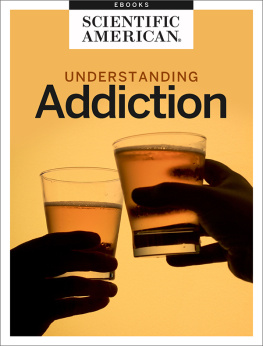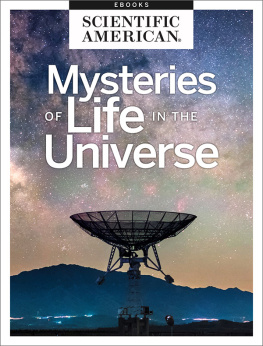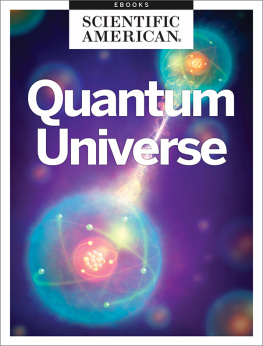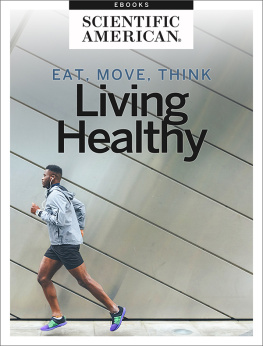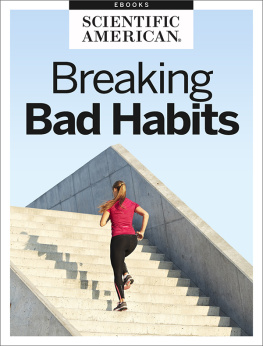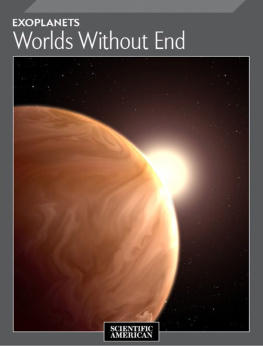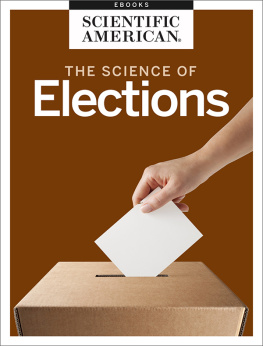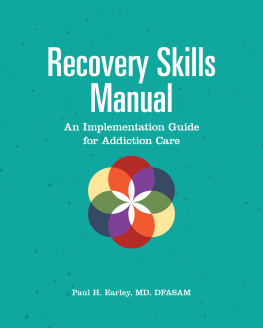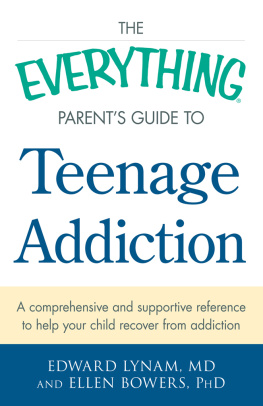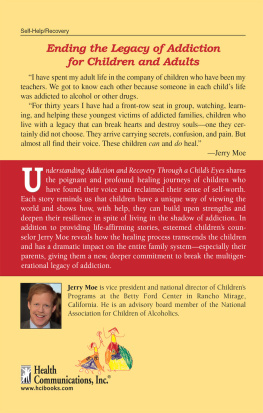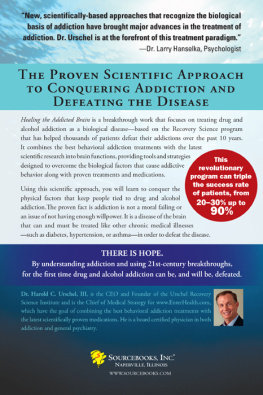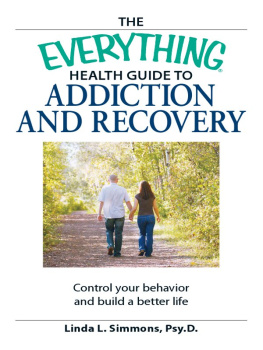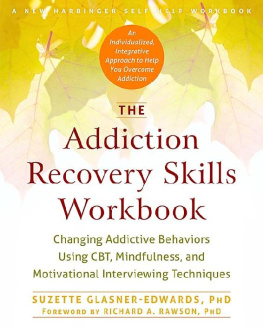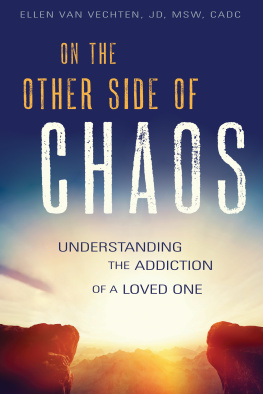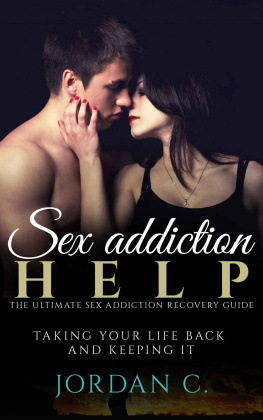Understanding Addiction
From the Editors of Scientific American
Cover Image: Instants/Getty Images
Letters to the Editor
Scientific American
One New York Plaza
Suite 4500
New York, NY 10004-1562
or editors@sciam.com
Copyright 2017 Scientific American, a division of Nature America, Inc.
Scientific American is a registered trademark of Nature America, Inc.
All rights reserved.
Published by Scientific American
www.scientificamerican.com
ISBN: 978-1-466842557


Understanding Addiction
From the Editors of Scientific American
Table of Contents
Introduction
by Jeanene Swanson
Section 1
1.1
by Anna Gosline
1.2
by David DiSalvo
1.3
by David Biello
1.4
by David H. Freedman
Section 2
2.1
by Eric J. Nestler and Robert C. Malenka
2.2
by Nikhil Swaminathan
2.3
by Nina Bai
2.4
by Eric J. Nestler
Section 3
3.1
by Francie Diep
3.2
by Sarah Graham
3.3
by Hal Arkowitz and Scott O. Lilienfeld
3.4
by Rodger Doyle
3.5
by Gary Stix
Section 4
4.1
by Deborah Franklin
4.2
by Katherine Harmon
4.3
by Melinda Wenner Moyer
4.4
by Edmund S. Higgins
Section 5
5.1
by Sally Lehrman
5.2
by John I. Nurnberger Jr. and Laura Jean Bierut
5.3
by Wray Herbert
5.4
by Hal Arkowitz and Scott O. Lilienfeld
5.5
by Andreas Heinz
Section 6
6.1
by Joseph R. DiFranza
6.2
by Christine Soares
6.3
by Jeneen Interlandi
Section 7
7.1
by Nina Bai
7.2
by Katherine Harmon
7.3
by Katherine Harmon
7.4
by Wilhelm Hofmann and Malte Friese
7.5
by Michele Solis
7.6
by Morten L. Kringelbach and Kent C. Berridge
The Science of Addiction
Many recovering substance abusers will likely tell you that beating their addiction was the hardest thing theyve ever had to do. Fortunately, with more research pointing to genetic causes of diseases such as alcoholism, and with more treatments aimed at the physiologyrather than psychologyof addiction, the road to sobriety could someday be a lot less uphill.
In this eBook, From Abuse to Recovery: Understanding Addiction , we tackle the many-faceted subject of addiction. First, though, its important to investigate why and how so many people succumb to a veritable prison of the mind. Sections 1 and 2 delve respectively into the psychology and the neurochemistry behind addiction. Section 1 includes an article finds that boredom leads to risky behavior, while another posits that creativity is linked to addictive tendencies, which then prime us for substance abuse. In Time-Warping Temptations, David Freedman wonders how temporal discounting can lead us to give into the immediate rewards of satisfying impulses instead of considering the long-term outcomes of that bad behavior on our future selves.Then Section 2 analyzes how both our reward and pleasure circuits become overactive and sensitized to our drug of choicehallmarks of addiction. Two articles by Eric J. Nestler, The Addicted Brain and Hidden Switches in the Mind, break down how this happens on the molecular level.
Subsequent sections break out addictive substances individually. Section 3 is devoted to recreational drugs, such as cocaine, heroine, and methamphetamine. Section 4 tackles prescription drugs, which have become an all-too-common substance of choice for many. In Bad Combo, author Melinda Wenner Moyer exemplifies the death of Whitney Houston, who overdosed in February 2010 on a deadly mixture of alcohol and prescription drugs.
Section 5 takes a look at alcoholism, and especially, the process of getting sober. Psychology-based treatments such as AA and counseling have helped many on the road to recovery. In addition, research points more and more toward a physiological disorder that is as much regulated by our genetic makeup as by nurture and our environmentAlcoholism and Our Genes by John Nurnberger, Jr. and Laura Jean Beirut is a lengthy story exploring the current state of genetic association studies. Smoking is one of the hardest habits to break, and a story in Section 6, Hooked from the First Cigarette, by Joseph DiFranza discusses exactly why this is the case. Other stories look at available and potential future treatments.
Finally, Section 7 examines avenues for overcoming addiction. Michelle Soliss piece, A Lifeline for Addicts describes addiction as an impairment in reversal learning and a consequence of rigid synapses, and studies indicate that these changes can be treated by returning levels of glutamate and other neurotransmitters to pre-addiction levels, making the recovery process easier. Another article by Morten Kringelbach and Kent Berridge titled The Joyful Mind explores research findings that show that want and pleasure are controlled by two separate neuronal circuits in the brain, prompting new ideas for treatment.
Addiction is costly on many levels to the individuals affected, their families and society as a whole, but science may soon be able to offer treatment options to make the road to recovery a little smoother. While rehab centers, counseling and 12-step programs are effective for many substance abusers, theyre also ingrained as the only way to overcome addiction. New research continues to validateand move forwardour knowledge of the physiological component of addiction and the ways in which we can turn that knowledge into a more complete protocol that treats both the mental and physical aspects of addiction.
Jeanene Swanson
Book Editor
SECTION 1
The Psychology Behind Addiction
Boredom Leads to Higher Risk-Taking Behavior
by Anna Gosline
For most people, boredom is a passing, nearly trivial feeling that lifts as soon asyour number is called, a task is completed or a lecture ends. But boredom has adarker side: Easily bored people are at higher risk for depression, anxiety, drugaddiction, alcoholism, compulsive gambling, eating disorders, hostility, anger, poorsocial skills, bad grades and low work performance.
Despite boredom's ubiquity and pathological associations, psychologists have yet topin down what, exactly, it is. Several different scales all claim to measureboredomthe most widely used is the Boredom Proneness Scalebut a recentanalysis suggests that they are measuring slightly different phenomena.Explanations for ennui are even more plentiful, ranging from Freud's theories ofrepressed emotions to individual differences in personality traits, the need forexcitement, and attention skills.
Part of the boredom puzzle may be individual differences in how muchexcitement and novelty we require. Men, for example, are generally morebored than women. They also exhibit more risk-taking behaviors, report enjoyingmore dangerous entertainment and are more likely to say that their environmentsare dull. "People who are more likely to become bored do not see theirenvironments as very rich or lively," says Stephen Vodanovich at the University ofWest Florida in Pensacola, who has been working on boredom for about 20 years.

